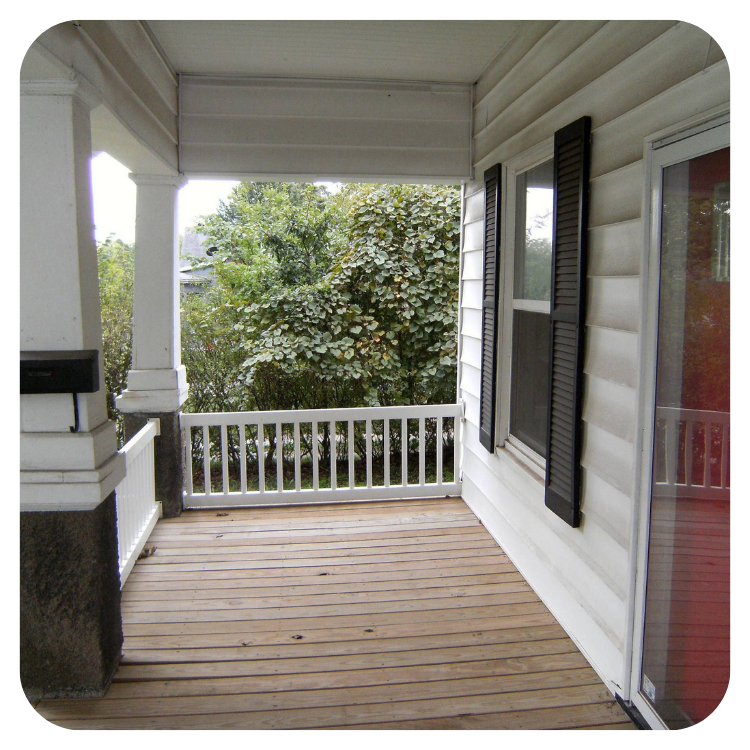Let Us Guide You Through the Process
Purchasing a home is a big decision and responsibility. We’re here to support you every step of the way.

Let Us Guide You Through the Process
Purchasing a home is a big decision and responsibility. We’re here to support you every step of the way.
Understanding the Community Land Trust Model
Community Land Trusts (CLTs) are utilized in cities across the United States to ensure low- to moderate-income families can afford to purchase a home of their own for generations to come. Houses purchased through a CLT not only aid the homebuyer in getting a leg up in their financial journey, but they also help stabilize communities, improve property values, and increase diversity in the neighborhoods.
Qualifications for Purchasing a Home Through the SCLT
To qualify to purchase a home through the Springfield Community Land Trust, your total household gross (pre-tax) income (everyone living in your home, even if unrelated) must be between 60% and 80% and sometimes up to 120% of the area’s median income (AMI).
| 1 Person: $57,100 | 2 Person : $65,200 | 3 Person: $73,400 | 4 Person: $81,500 | 5 Person: $88,100 | 6 Person: $94,600 | 7 Person: $101,100 | 8 Person: $107,600 | |
|---|---|---|---|---|---|---|---|---|
| 60% of Median Income | $34,260 | $39,120 | $44,040 | $48,900 | $52,860 | $56,760 | $60,660 | $64,560 |
| 80% of Median Income | $46,650 | $52,200 | $58,700 | $65,200 | $70,450 | $75,650 | $80,850 | $86,100 |
| 120% of Median Income | $68,450 | $78,250 | $88,000 | $97,800 | $105,600 | $113,450 | $121,250 | $129,100 |
Community Land Trust homebuyers are responsible for:
How to Access Your Credit Score
Credit Karma provides a truly free credit score to consumers directly from the credit bureau. Your scores are retrieved securely with no hidden fees.
AnnualCreditReport.com allows you to request a free credit file disclosure, commonly called a credit report, once every 12 months from each of the three nationwide consumer credit reporting companies (Equifax, Experian, and TransUnion).
Down Payment Requirements
The Springfield Community Land Trust requires a $1,500 down payment to purchase the home.

Determine what You Can Afford and Get a Home Loan
As a rule, your housing costs shouldn’t exceed 30% of your take-home (net) income.
Your monthly housing payment includes:
Upkeep costs depend on many variables, but most homeowners spend 1% to 4% of their property’s value for maintenance every year.
Qualified community land trust applicants will submit a loan application and supporting financial documents to a participating lender, to include:
The Bank of Missouri and Guaranty Bank are approved lenders for Springfield Community Land Trust homes. Applicants with a steady income for at least two years and a minimum credit score of 640 are good candidates for approval. Applicants can still qualify if they have a bankruptcy or foreclosure that has been discharged for at least two years.
Mortgage Calculator
Submit Application
If homeownership through the Springfield Community Land Trust looks like a viable path for you, we encourage you to complete the application. Once your application has been submitted and reviewed, the SCLT staff will help you discover if you qualify to purchase a home, or they will help you make a plan to purchase a home in the future if you don’t currently qualify.
Homebuyer Education Course
Applicants must complete a HUD-approved Homebuyer Education Course and a one-on-one follow-up counseling session to purchase a home through the Springfield Community Land Trust. The course can be online, one-on-one, or in a classroom setting.
Online Homebuyer Education Courses:
To participate in a one-on-one or classroom course, you need a referral from us to our HUD-certified counseling partner (at no additional cost).


Work with a Realtor®
Buying and selling a home comes with paperwork — there’s no way to avoid it. A Realtor® helps you navigate the buying process of exchanging the rights to a home, will draft the sales agreement for you, and will work with the title company or attorney to prepare the closing documents.
Understanding a Ground Lease
In a Community Land Trust model, the improvements (home, outbuildings, etc.) are sold, and the Land Trust retains ownership of the ground beneath the home. The Community Land Trust leases the land to the homeowner through a ground lease for an affordable amount. This long-term lease separates ownership of the land from the ownership of the building.
Our agreement is a 99-year renewable lease. By retaining ownership of the land, the Land Trust benefits the community by dictating that the home must be maintained as affordable for future families as it is sold and repurchased. This model allows working families build assets and financial stability.
Meet with an Attorney
A ground lease is a legal document, and the homebuyer will meet with an attorney to ensure they understand the agreement. The buyer can choose and pay for their own attorney, or we can refer buyers to our partner agency, Legal Services of Southwest Missouri, at no cost.

Closing
The purchase transaction concludes with a closing at a title company. A title company ensures the title to a piece of real estate is legitimate and then issues title insurance for that property. Ownership of the home is transferred to the new homeowner at the time of closing, and the homeowner leaves the closing with the keys to their new home.
